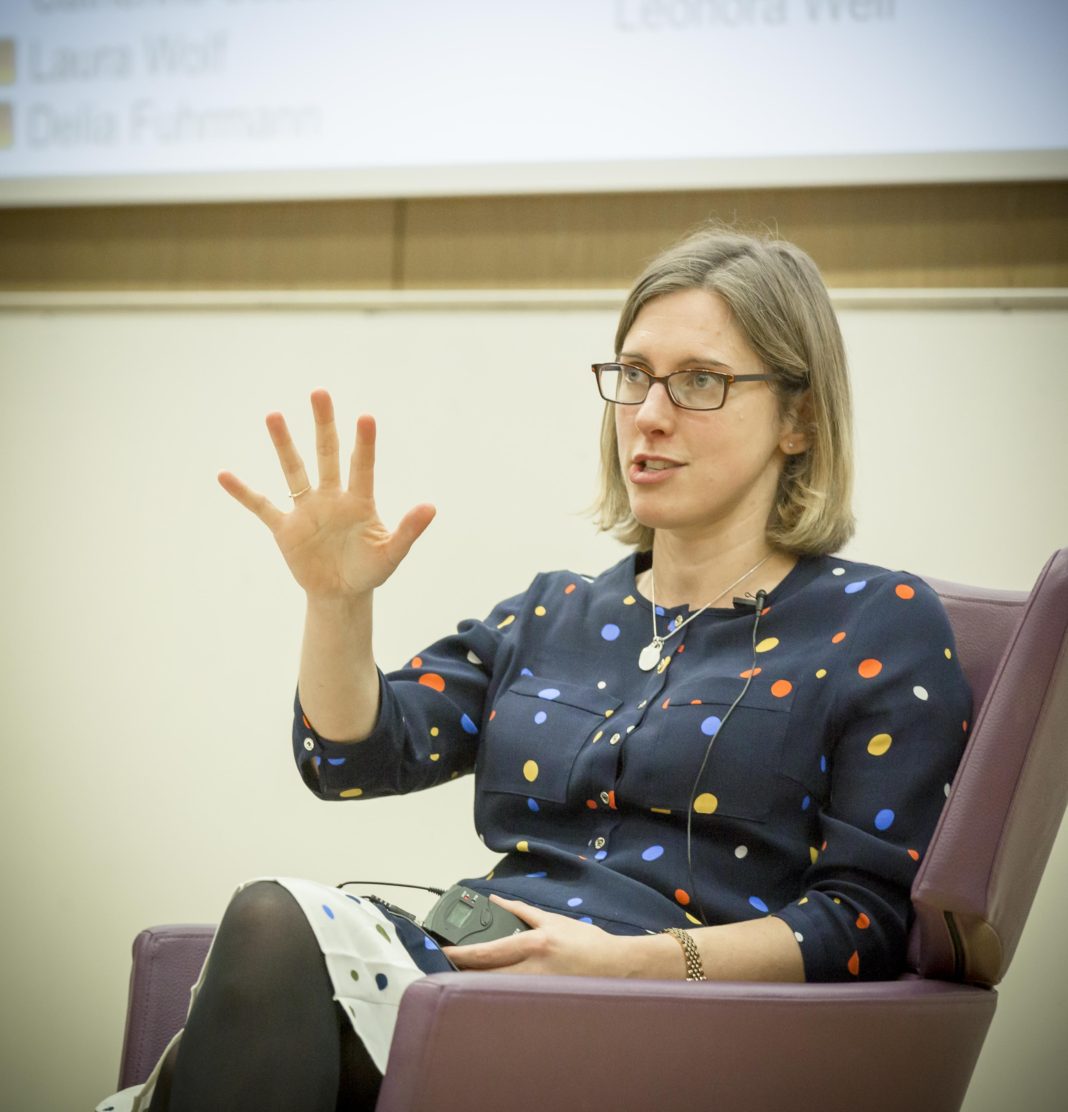
Cognitive neuroscientist Professor Sarah-Jayne Blakemore spoke to a busy lecture theatre in central London last night for the second-ever British Humanist Association (BHA) Rosalind Franklin Lecture, held in the week of International Women’s Day in celebration of women’s contributions to Humanism.
Professor Blakemore’s lecture on ‘Inventing your self: the secret life of the adolescent brain’ explored the human mind at a pivotal time in its development. Inspired by research into the frequent adolescent onset of schizophrenia and other mental illnesses, Blakemore devoted much of her career to understanding precisely what is going on in the human brain during this tumultuous period. In the course of her lecture, she explained with reference to the latest peer-reviewed studies just how how pervasive, across time and culture, are some of the stereotypical behaviours we associate with ‘teenagers’ – such as risk-seeking, self-involvement, and heightened preoccupation with social concerns – and what these differences in behaviour tell us about the formation of personality and identity.
While many of these stereotypical adolescent behaviours have a clear and observable basis in fact, she was keen to point out that stereotypes about teenagers are not simplistically true. The wildcard factor for differences in adolescent behaviour (when compared with adults and younger children) was very clearly the added significance placed on social settings and peer relationships, which the data showed had an enormous, and at times staggering, impact on decision-making. Pointing to data which shows extremely heightened sensitivity to peer influence and anxieties, and patterns in the development of the brain as measured with the latest in MRI technology, Blakemore was able to assert that adolescence was ‘the period of life where we really develop our sense of self, and in particular… our social self.’
Blakemore was keen to dispel a myth, accepted as part of mainstream science as recently as the 1990s, that brain development is largely completed by childhood. To the contrary, she showed, such development continues steadily into the teen years, and then into the 20s, 30s, and even 40s. One form of development concerned the loss of grey matter in the brain, which decreases in volume over a lifetime by an average of 1.5% a year. The steady replacement of grey matter with white matter represents, she theorised, a brain that is becoming more efficient at using the synaptic pathways it relies on more often – and letting go of those it doesn’t really use.
The lecture presented a powerful case for changing societal attitudes to adolescent behaviour, as well as a renewed appreciation for adolescence as a distinct period of life and a fertile ground for future scientific research. Her research underlined the importance of recognising adolescence as a distinct period in life when our brains behave differently. As a phase of life, it represents something dramatic: the formation and construction of personal identities, and our ideas of who we are in the wider community. And while it is a period characterised by volatility and increased sensitivity to stressors – accounting for it being a critical time window for the development of mental disorders – it should also be understood as a time of profound opportunity for young people looking to shape the adults they will become.
Notes
The British Humanist Association (BHA) is the national charity working on behalf of non-religious people who seek to live ethical and fulfilling lives on the basis of reason and humanity.
Named after the pioneering English chemist who helped uncover the unique double helix structure of DNA, the Rosalind Franklin Lecture was established to recognise and celebrate the contribution of women in Humanism – whether through achievements in science, philosophy, or the promotion of democracy and human rights. It is held on International Women’s Day (8 March), or as close as possible, and forms part of the BHA’s annual lecture series, which also includes the Darwin Day, Voltaire, Holyoake, Blackham, and Bentham Lectures.
